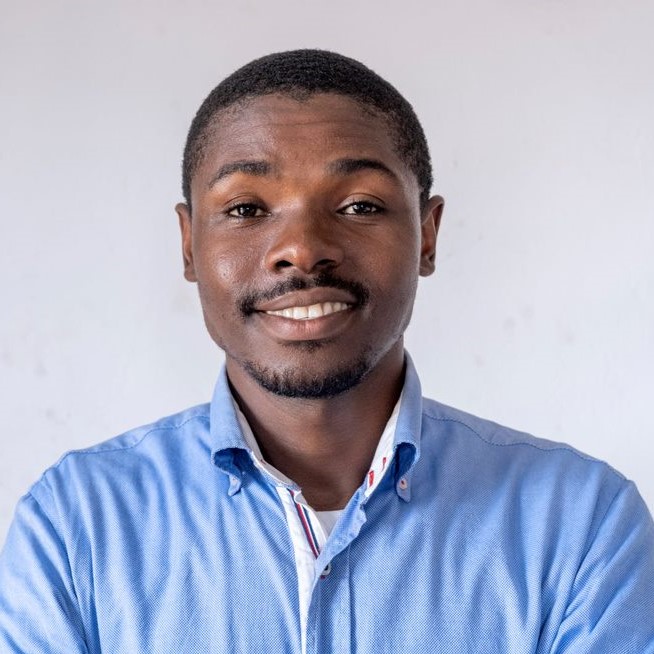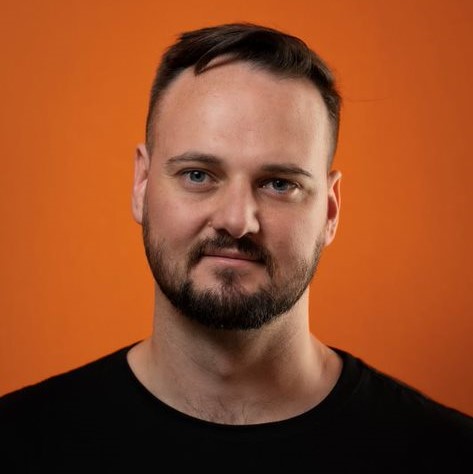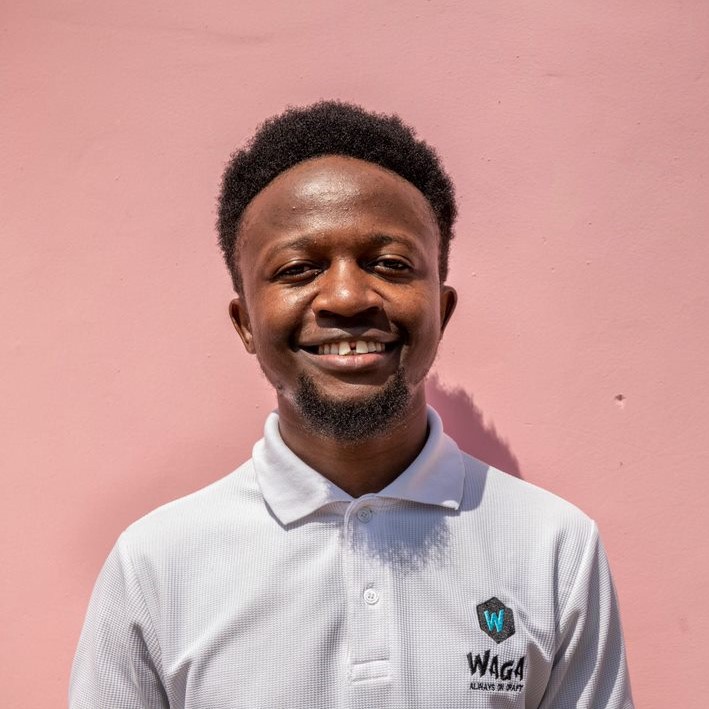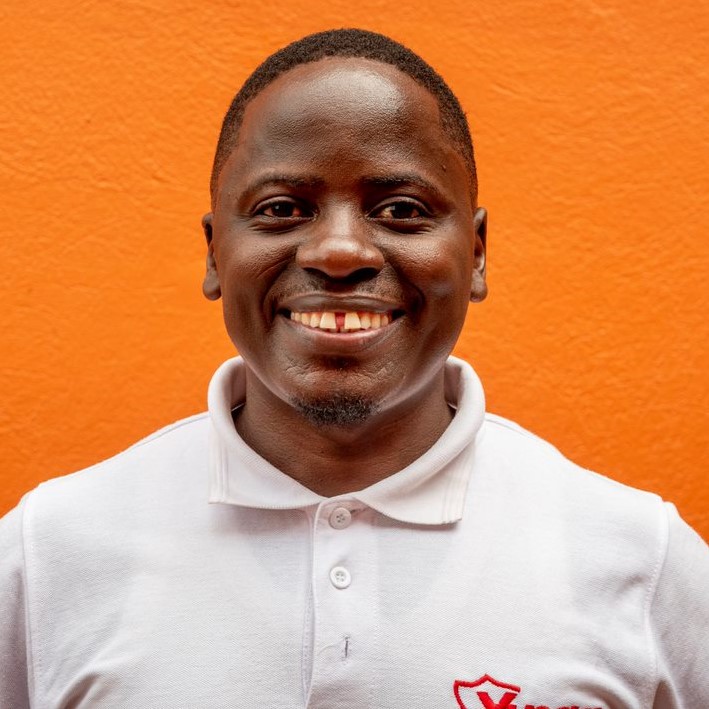- Four innovators from Nigeria, South Africa, Tanzania and Uganda have been selected to compete for the £25,000 Africa Prize for Engineering Innovation
- Innovations include electromobility motorbike conversion, a portable uterine inspection device, power packs made from recycled batteries, and a local digital security network for community safety
Scalable engineering innovations created to: address high gas prices by retrofitting motorbikes to run on batteries; easily diagnose and treat uterine health issues without anaesthetic; recycle lithium-ion laptop batteries into power packs for affordable electricity; and connect local communities through a digital rescue network to form community policing groups; have been selected as finalists for the prestigious Africa Prize for Engineering Innovation 2023.
The Africa Prize, founded by the Royal Academy of Engineering in 2014, is Africa’s biggest prize dedicated to engineering innovation. The ninth winner will be announced in Accra, Ghana, on 6 July 2023, and will be awarded £25,000, with the other three finalists receiving £10,000 each. This year’s finalists are from Nigeria, South Africa, Tanzania and Uganda.
The four finalists were selected from a shortlist of 15 African innovators for their proven ability to harness engineering to address common problems faced by Africans across the continent. The innovations tackle challenges central to the UN’s Sustainable Development Goals, including good health and wellbeing, affordable and clean energy, peaceful and inclusive societies, and reduced inequalities.
2023 Finalists
Chukwuemeka Eze, a Nigerian electrical engineer, developed the Revive Kit, a modular e-mobility service used to convert gas-powered three-wheeled motorbikes to run on rechargeable lithium-ion batteries. Drivers can save up to 60% in operational costs, including gas or petrol, and 90% in maintenance costs. Eze’s company also trains technicians in the use of the kit. The Revive Kit includes lithium-ion batteries, an AC induction motor, a retrofit shaft and an electronic controller, which acts as the inverter. It also includes a vehicle-to-home power adapter. Hall-effect sensors interface the throttle and the motor to the controller to determine and regulate motor speed. Other sensors monitor the vehicle’s battery and location, engine performance, motor temperature and maintenance requirements.
On a single charge, the smart battery rack accepts modular batteries, and can accommodate batteries for a range of up to 120 kilometres on an average load of 320 kilograms. The vehicle-to-home integration can provide power to charge devices in off-grid homes or during power failures.
The modular battery and the smart battery racks can also be used by third party agents in building battery booths for a battery swapping network that uses mobile technology to keep drivers informed on the availability of charged batteries. This eliminates charge downtime and reduces pressure on the grid/supply.
“With surging fuel prices in Africa, the Revive Kit aims to be part of the solution. Too many drivers are spending over 60% of their revenue on petrol and maintenance; we aim to deliver an affordable and sustainable transport system which is environmentally friendly.”

Edmund Wessels, a South African biomedical engineer, developed FlexiGyn, a battery-powered portable handheld device enabling gynaecologists to diagnose and treat a woman’s uterus without anaesthetic or expensive equipment, increasing women’s access to reproductive healthcare, particularly in remote areas. Typical hysteroscopy systems are rigid, leading to high levels of patient discomfort, requiring bulky additional equipment for visualisation. This innovative device offers a more comfortable and efficient experience for both patients and healthcare providers. In addition to the hardware, Wessels and his team are developing integrated software solutions that seamlessly connect the FlexiGyn device with existing medical practice systems. This integration connects OB/GYN specialists with GPs, radically increasing the frequency of diagnoses. Streamlining patient scheduling, electronic health record synchronisation and AI-assisted diagnosis, it optimizes women's healthcare delivery. Improved efficiency and collaboration enable healthcare professionals to diagnose and treat patients more frequently, enhancing the overall quality of care.
“We’ve developed a system that aims to improve women’s health through better point-of-care diagnostics. Designed for both the physician and patient, our solution is an intuitive, user-friendly device that is more comfortable for the patient thanks to its flexible design.”

Gibson Kawago, a Tanzanian electrical engineer, developed the WAGA PAWA Pack, a rechargeable power source created from recycled laptop lithium-ion batteries, providing a reliable and affordable electricity source. Batteries are tested over two to four weeks to ensure conformity to the manufacturer’s standard. Once assembled, the pack has an output of either 12, 24, 36 or 48 DC volts, or inverted to 203 or 110 AV volts, suitable for different applications, including powering lights, appliances and heaters. Battery cells are fused together with nickel strips and enclosed in an aluminum case before being connected to a battery monitoring and protection system with sensors to monitor performance and detect changes in temperature, current and voltage, which are communicated via a display screen. The system is connected to a mobile app to enable users to monitor performance. The pack comes with ports that can be connected to inverters, solar lamps and other chargers, and can be fully recharged in up to three hours. The packs are recharged by solar panels.
“WAGA Power Packs provide low-carbon power to homes and allow businesses to keep operating after sundown. Depending on the size of the battery and its purpose, it can provide electricity for anywhere from thirteen hours to one month. We are striving to change the lives of Tanzanians, particularly those in resource-scarce rural areas.”

Anatoli Kirigwajjo, a Ugandan software engineer, developed YUNGA, a local digital security network that connects neighbours to each other and police within a 20km radius via a physical device, smartphone app or SMS service, providing security at a low cost. Communities are divided into networks of 10 to 30 households, each receiving a device connected to a local area network. In cases of emergency, pressing a button sets off a load alarm on all devices connected to the network, and sends a message with the victim’s details to other devices, prompting a community response. The system includes motion sensors for when users leave their homes or businesses. YUNGA also operates in areas with no internet through a long range wide area network. YUNGA reduces responses times from hours to the shortest time possible for members of the network to reach someone in danger.
“I developed YUNGA after losing USD 1,300 worth of assets in a break-in, with little chance of the thieves being caught. We hope that with our household networks, communities will become harder targets for criminals. This will ensure safety, which in turn will create the space for economic activities to thrive.”

The finalists were chosen by the Royal Academy of Engineering after receiving support over eight months to help them accelerate their businesses. This included comprehensive and tailored entrepreneurship training, sector specific engineering mentoring, communications support, pitching opportunities and access to the Academy’s network of high profile, experienced engineers and business experts in the UK and across Africa. The 2023 finalists will pitch their innovations to a panel of five judges and a live and online audience in Accra on 6 July.
Local supporters, industry peers, engineering and entrepreneurial enthusiasts, innovation hubs, investors, as well as media are encouraged to attend the Africa Prize final free of charge in person or online and view an online exhibition showcasing the Africa Prize. The final will be hosted at the Labadi Beach Hotel in Accra by Ato Ulzen-Appiah, Ghanaian entrepreneur and Director of the GhanaThink Foundation.
This year, the judges are:
- Dr Ibilola Amao, Founder and Principal Consultant, Lonadek Global Services
- Malcolm Brinded CBE FREng (Chair of judges), Past President of the Energy Institute, Chair of EngineeringUK
- Ethel Cofie, CEO and Director, Edel Technology Consulting
- Rebecca Enonchong FREng, Founder and CEO, AppsTech
- Dr John Lazar CBE FREng, Co-Founder and General Partner, Enza Capital; Chair, What3Words and Raspberry Pi Foundation
- Sewu-Steve Tawia, Co-Founder & Managing Partner, Jaza Rift Ventures
- Dr Alessandra Buonfino, Senior Advisor, Global Innovation Fund; Consultant; International Research Fellow, Saïd Business School, University of Oxford
Guest speakers will include:
- Professor Elsie Effah Kaufmann, Dean of the School of Engineering Sciences at the University of Ghana
- Harriet Thompson, British High Commissioner for Ghana
Africa Prize Judge Dr Ibilola Amao said, “Each of the 15 shortlisted innovators demonstrated an understanding of engineering as a tool to improve the quality of the lives of members of their communities. Energy and environmental solutions featured heavily among this year’s cohort, and it was clear that our innovators are committed to sustainable solutions for Africa’s development. Our four finalists distinguished themselves with their resolve, resilience and initiative during the Academy’s training programme, and we are privileged to endorse these proudly African entrepreneurs engaged in world-class innovation.”
The remaining 11 candidates from the 2023 Africa Prize shortlist are now eligible for the One-to-Watch Award worth £5,000, for which they will compete for the public’s vote at the Africa Prize final. The 11 One-to-Watch Award candidates are:
- Affordable AMD Solution, Boitumelo Nkatlo, South Africa – A technology to treat acid mine drainage (AMD) using industrial waste to recycle contaminated water for human consumption.
- Aquaset, Obed Zar, Ghana – A smart water management system that monitors water levels in boreholes and water tanks, regulating the rate at which water is pumped and preventing pump breakdowns and water waste.
- Arobot, Cristovão Cacombe, Angola – A robotics learning tool for children that must be assembled and programmed to perform specific tasks.
- Digital Aquaponics, Flavien Kouatcha Simo, Cameroon – A portable fish farm that uses fish waste as a fertiliser to produce organic vegetables, enabling small-scale farmers to increase production.
- MEDBOX, Emmanuel Ofori Devi, Ghana – A healthcare monitoring system that records a patient’s vital signs and transmits them to doctors who then provide remote medical advice.
- Multi-Purpose Earth Brick Machine, Fikru Gebre Dikumbab, Ethiopia – A manually-operated portable machine to make interlocking compressed earth bricks using 90%-95% soil and 5%-10% cement.
- ProbiGal, Dr Deon Neveling, South Africa – A host-specific multi-strain probiotic designed to promote gut health and prevent bacterial infections in chickens, reducing the need for antibiotics.
- Smart Green Stove, Margaret Yainkain Mansaray, Sierra Leone – An efficient non-electric cooking device designed to reduce greenhouse gas emissions and health risks, slashing energy use by 70%.
- Smart Water Tech, Allen Chafa, Zimbabwe – A real time water quality monitoring and control system to address water borne diseases.
- ThinkBikes CoolMAX, Tolulope Olukokun, Nigeria – An electric cargo bike with a battery powered fridge to help Nigeria’s smallholder farmers get fresh food crops to market.
- Waste-to-Wealth Enhancer, Cletus Ekpoh, Nigeria – A four-part recycling system to help informal waste collectors.
To date, the Royal Academy of Engineering has supported more than 130 entrepreneurs across 20 African countries through the Africa Prize with a rigorous business training programme and lifelong support through the Africa Prize alumni network. More than 70% of the alumni’s engineering and technology businesses now generate revenue. Between them the Africa Prize alumni have raised more than USD 14 million in grants and equity funding, and created more than 3,600 jobs, almost half of them for women. The Africa Prize runs annually and is designed to bring together individual innovators changing their communities, to form a network that can transform a continent.
The 2024 Africa Prize for Engineering Innovation is now open for entries. Individuals and small teams living and working in sub-Saharan Africa with a scalable engineering innovation to solve a local challenge are invited to enter. The deadline for entries is 25 July 2023 (4pm BST). Visit the ‘How to Apply’ guide on the Africa Prize website and submit applications through the online grants system.
Notes for editors
- The Africa Prize for Engineering Innovation, founded by the Royal Academy of Engineering in 2014, is Africa’s biggest prize dedicated to developing African innovators and helping them to maximise their impact. It gives commercialisation support to ambitious African innovators developing scalable engineering solutions to address local challenges, demonstrating the importance of engineering as an enabler of improved quality of life and economic development.
An eight-month period of tailored training and mentoring culminates in a showcase event where a winner is selected to receive £25,000, along with three runners-up, who are each awarded £10,000. One shortlisted innovator with receive an award of £5,000 as ‘The One to Watch’.
The Africa Prize has been generously supported by the UK Government, charitable trusts and foundations, individual donors and corporate partners over the last nine years.
Judges, mentors and expert reviewers for the Africa Prize for Engineering Innovation have provided over 2,600 hours of support to entrepreneurs since the prize was established – this equates to a value of over £1,300,000 in support. - The Royal Academy of Engineering is harnessing the power of engineering to build a sustainable society and an inclusive economy that works for everyone.
In collaboration with our Fellows and partners, we’re growing talent and developing skills for the future, driving innovation and building global partnerships, and influencing policy and engaging the public.
Together we’re working to tackle the greatest challenges of our age.

